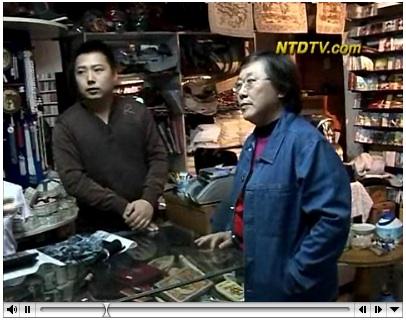WONG:
And now a rare interview with the
wife of a prominent Mongolian
dissident. The wife of a scholar
named Hada, talks about how the
region has been overlooked by the
international community, and how the
survival of Mongolian culture hangs
in the balance.
STORY:
A Mongolian scholar named Hada was
tried behind closed doors in 1996
and jailed for 15 years for
separatism, spying and supporting
the Southern Mongolian Democratic
Alliance.
Now, Hada's wife is speaking out
against her husband's detainment.
She says she's harassed by
local authorities and that her house
is under strict surveillance. She
isn't even able to leave the country
to attend an awards ceremony.
[Xinna, Hada's Wife]:
"I went to the local police station
to ask for a document (for my visa).
They refused to give it to me,
citing my husband's case as the
reason. I asked, 'Isn't this kind of
an implication' and they answer
explicitly, 'Yes, it is'. A
policeman said he would lose his job
if he gave me the document."
Hada's son, Weilesi, says visiting his father is becoming increasingly difficult.
[Weilesi, Hada's Son]:
"Just by visiting my father, what
harm could I cause to the state
security during the Olympics? What
rules have I broken just by taking
notes of what daily necessities he
asked for? They kept saying that
human rights situation in Mongolia
has been improving. My experiences
can clearly tell that no
improvements have taken place.”
Xinna says there's a growing sense of dissatisfaction amongst ethnic Mongolians.
[Xinna, Hada's Wife]:
"Some rights of the ethnic minority
groups have been denied and some
requests have been ignored. This
causes dissatisfaction among the
ethnic minority group and conflicts
between them and the Han people."
Inner Mongolia is an autonomous region, but like Tibet and Xinjiang in the far west, Beijing keeps a tight rein on the region, fearing ethnic unrest in the country's strategic border areas.








